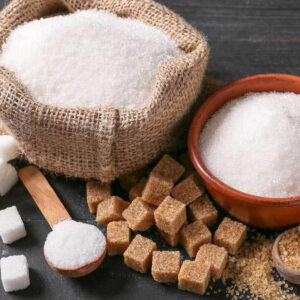The sourcing of beet sugar vs cane sugar affects farming impact in the sugar industry.
The sourcing of beet sugar vs cane sugar affects farming impact in the sugar industry.
Blog Article
Discover the Uses and Perks of Beet Sugar Vs Cane Sugar in Your Daily Diet
Discovering the distinctive top qualities of beet and cane sugar exposes greater than just their sweetening capacities; it highlights their special impacts on wellness and cooking arts. Beet sugar, known for its refined taste, is commonly preferred in fragile treats, whereas cane sugar, with its hint of molasses, includes splendor to robust dishes. Each type holds its very own dietary account and glycemic implications, welcoming a deeper understanding of their roles in a balanced diet regimen and lasting consumption practices.
Beginning and Production Processes of Beet and Cane Sugar

The distinct climates and soil kinds required for growing sugar beetroots and sugarcane contribute to differences in their cultivation methods and geographic circulation, affecting the business economics and sustainability of their production. beet sugar vs cane sugar.
Nutritional Contrast In Between Beet Sugar and Cane Sugar
In spite of stemming from different plants, beet sugar and cane sugar are nutritionally really similar, both largely containing sucrose. Each provides about 4 calories per gram, converting to about 16 calories per teaspoon. Structurally, both sugars are composed of approximately 99.95% sucrose, with very little quantities of other compounds like wetness and trace minerals, which do not considerably alter their dietary accounts.

Eventually, when selecting in between beet sugar and cane sugar based on dietary material alone, great post to read both deal similar benefits and drawbacks as they are essentially types of the exact same molecule-- sucrose, providing fast energy without other nutrients.
Effect On Health And Wellness: Glycemic Index and Caloric Material
Discovering better into the effects of beet sugar and cane sugar on health, it is essential to consider their glycemic index and caloric content. The glycemic index (GI) of both beet and cane sugar is around 65, classifying them as high-GI foods, which can create fast spikes in blood sugar degrees.
Each sort of sugar has about 4 calories per gram, making their caloric material matching. For those checking caloric intake, particularly when managing weight or metabolic health and wellness problems, understanding this equivalence is important (beet sugar vs cane sugar). Excessive intake of any type of high-calorie, high-GI food can add to health concerns such as weight problems, heart condition, and insulin resistance.
Environmental and Economic Factors To Consider of Sugar Manufacturing
Beyond health influences, the production of beet and cane sugar also raises significant ecological and financial concerns. Sugar beet growing has a tendency to need cooler climates and has a lower geographical footprint compared to sugar cane, which prospers in tropical areas.
Additionally, the use of pesticides and plant foods in both beet and cane sugar farming can lead to soil deterioration and pollution, more influencing biodiversity and regional water bodies (beet click site sugar vs cane sugar). Visit Your URL The option between growing sugar beet or cane frequently hinges on regional ecological conditions and financial factors, making the sustainability of sugar production a complicated problem
Culinary Applications and Taste Differences
While the ecological and economic aspects of sugar production are indeed considerable, the choice between beet and cane sugar also affects cooking applications and taste accounts. Beet sugar, obtained from the sugar beet plant, is recognized for its remarkably neutral taste.
Walking stick sugar, drawn out from sugarcane, commonly preserves molasses traces, which present an unique richness and deepness. This mild molasses flavor enhances the complexity of baked goods, sauces, and sauces. It is specifically preferred in things where a sugar undertone is wanted, such as in brownies or gingerbread. The minor variant in moisture material in between beet and cane sugar can impact the texture and consistency of recipes, making cane sugar a recommended selection for particular dishes that benefit from its special residential properties.

Verdict
In verdict, both beet and cane sugar have distinct origins and manufacturing processes, providing similar dietary accounts with mild distinctions in salt content and taste. While their influence on health and wellness, especially pertaining to glycemic index and calories, is similar, the option in between them commonly comes down to ecological, financial elements, and certain culinary requirements. Comprehending these aspects can assist consumers in making notified choices that align with their health objectives and flavor choices.
Report this page